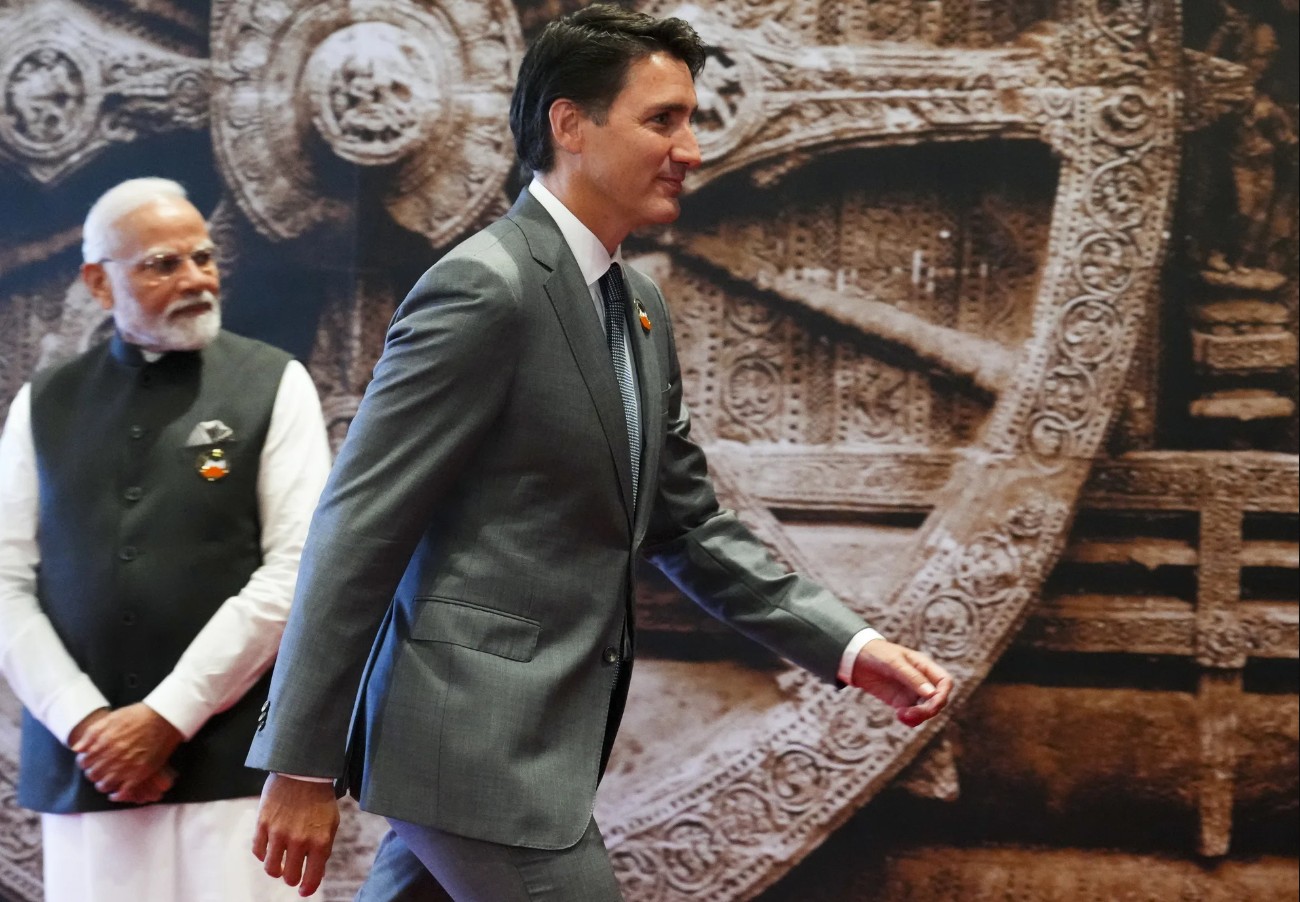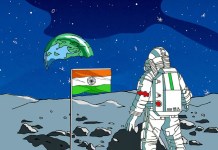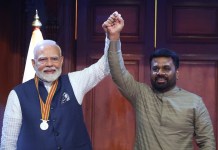Two months ago, Prime Minister Justin Trudeau addressing the Canadian Parliament, said that Indian officials had a hand in the killing of Khalistani leader Hardeep Singh Nijjar in Canada in June 2023. For three months, Canadian authorities went to find the assailants but had no success.
Canada hosts a 2 percent population of the Sikh community of Indian origin, to be precise, Punjabi origin. Sikhs are an adventurous community that depends on hard work and honest earnings. This is true of the Sikh Diaspora, wherever they are outside India. They have contributed to the economy of their countries of residence.
Proselytized communities somehow nurse hatred towards the people from whom they originate — Hindus in the case of Sikhs. Iranians are bitterly against the Arabs, and Christians in South India are sore against Hindus, and this is the case with Pakistani Muslims.
The Sikh community in Punjab, India, is also divided politically and factionalized. Being a community with martial history, fighting the adversary and liquidating him are the desk book rules of the Sikh community.
When Indian democracy removed the thin veneer of secularist democracy and pandered to vote bank politics, it became a deadly instrument against democracy as well as secularism.
Many Sikh leaders took recourse to politicizing religion and succeeded. The Sikh homeland idea, Khalistan, was born and strongly nurtured. For India’s arch-enemy, Pakistan, the Khalistan movement became a heaven-sent gift. Its rulers have perfected the art of falsely owning anti-India elements.
After the eradication of the Khalistani movement in Punjab, an adventure that took many precious lives, the Sikh insurgency was suppressed. Out of fear or disappointment or a dream of a better life, a considerable number of Sikhs migrated to Canada for the reason that Canadian migration rules were not that harsh.
Secondly, much land was available in Canada where the Sikhs could raise farms orchards for agricultural products. They became prosperous not through any generosity of the Canadian government but through the sweat of the brow.
Sikhs also enjoy a sense of social discipline. With a sizable number, the Sikhs formed a political party. Jagmeet Singh Jimmy Dhaliwal, a Canadian Member of Parliament (born January 2, 1979), is a Canadian politician who has led the New Democratic Party (NDP) since 2017.
Ideologically, Singh identifies as both a progressive and a social democrat. He advocates raising the federal minimum wage to 15 Canadian Dollars an hour, decriminalizing personal possession of all drugs, and eliminating several tax deductions available to the highest-income earners.
The core group of Khalistanis in Punjab re-emerged when they found the State government trying to soft-paddle with them. The revived terrorism, violence, anti-national posture, looting banks, and gunning down people under the pretext of labeling the victim as an “informer” are the crimes that distinguish these terrorists from the vast peace-loving Sikh population.
When the law enforcement machine came into motion, many of them, prompted by their relatives, friends, acquaintances in Canada, the United Kingdom, Australia, etc., facilitated their escape from the clutches of law and ran to Canada.
They carried the self-created aura of victimhood with them, and a political platform created by Jagmeet Singh of NDP in Canada was readily available to plead for them.
Over the years, Canadian political democratic dispensation helped them learn how to pursue their undisclosed political objectives by using the mask of loyalty to the Canadian democratic process.
Many Canadians of Christian faith were inducted into some positions of office bearers of the party, thereby projecting themselves as loyal citizens of Canada. Not all, but many among the migrated Sikhs in Canada got involved in criminal activities, and many of them had been booked in India for various crimes but had managed to escape the long arm of law.
Men like Nijjar or Gurpatwant Singh and scores of their followers led the anti-India movement in Canada, intimidating Hindus, desecrating Hindu Temples, and spreading hatred against India.

Said to be from a murky background, Trudeau’s father was an activist sympathizing with the Khalistanis. His son, Justin Trudeau, has stepped into his father’s shoes. Hence, he has to play second fiddle to the Khalistanis, whose 25 members — NDP in the Canadian Parliament — play a crucial role in forming the government.
Indian foreign office conveyed to the Canadian government that the Khalistanis with Canadian citizenship were running a constant anti-India campaign, which is against the Geneva Convention, international laws, and the norms of cordial relations between the two countries.
Trudeau’s government allowed his personal and political interests to subvert the established norms of friendly relationship between the two countries. It overlooked the threatening posture of Khalistanis in Canada against the Indian mission; it ignored the aggressive and vicious speeches made by the Khalistanis openly in public rallies.
More recently, the US has said that it has thwarted an Indian attempt to murder Pannu, an Indian Sikh, now a US citizen. The Indian foreign office has been issued a warning note. We will not discuss the pros and cons of this narrative.
We know how the anti-democracy brigade is globally busy in maligning India and derailing India’s friendly relations with the Western countries. We know the reasons, and we also know the agencies involved. We leave that aside for the time being but ask some questions;
1. What was the policy of Washington towards the southern insurgents during the Freedom War, mainly when the most humane President the US ever had (Abraham Lincoln) was in the White House?
2. What treatment did President Bush give to Saddam Hussein, alleging that he had a nuclear weapon when later events proved he had none? Who authorized President Bush to treat Saddam the way he was treated? Saddam was killed because he was the only secular, non-radicalized leader in the entire Muslim world of his day, which did not suit the Western world.
3. With whose permission was the Iranian military general Suleimani killed by shooting a missile at him while he was driving his vehicle?
4. With whose permission did the US commandos land at night in Abbottabad, force their way into Osama’s bedroom, and shoot him dead?
5. When the Khalistani leader Pannu said in a public rally in New York that he would blast the Air India flight if Indians traveled in it, was it not the responsibility of the US security establishment to arrest him and file a terror threat case against him? Why did the Biden administration seal its lips? Is the administration an accomplice in terrorism?
6. If we undertook all these killings because these victims posed a threat to the security of the US, should not Trudeau and Biden have the same respect for the security of the world’s largest democracy? Does their security enjoy sanctity, whereas India’s security can be compromised?
We said that there are elements who want to create a wedge between the strongest and the largest democracies in the world because the two together pose a threat to the nefarious designs of the Left and the radical combine.
An article titled “US-India ties dangle darkly on Sikh separatist kill plot,” written by a professor of Thompson Rivers University and published by Asia Times in its issue of 28 November, is a glaring example of how the anti-democracy and pro-terrorism nexus is working in combination.
Is it for nothing that the editor of Asia Times has added an endnote to the article vouching for the author’s non-partisanship? The note speaks much more than what it hides.
- KN Pandita (Padma Shri) is the former director of the Center of Central Asian Studies at Kashmir University. Views Personal.
- Mail EurAsian Times at etdesk(at)eurasiantimes.com
- Follow EurAsian Times on Google News




